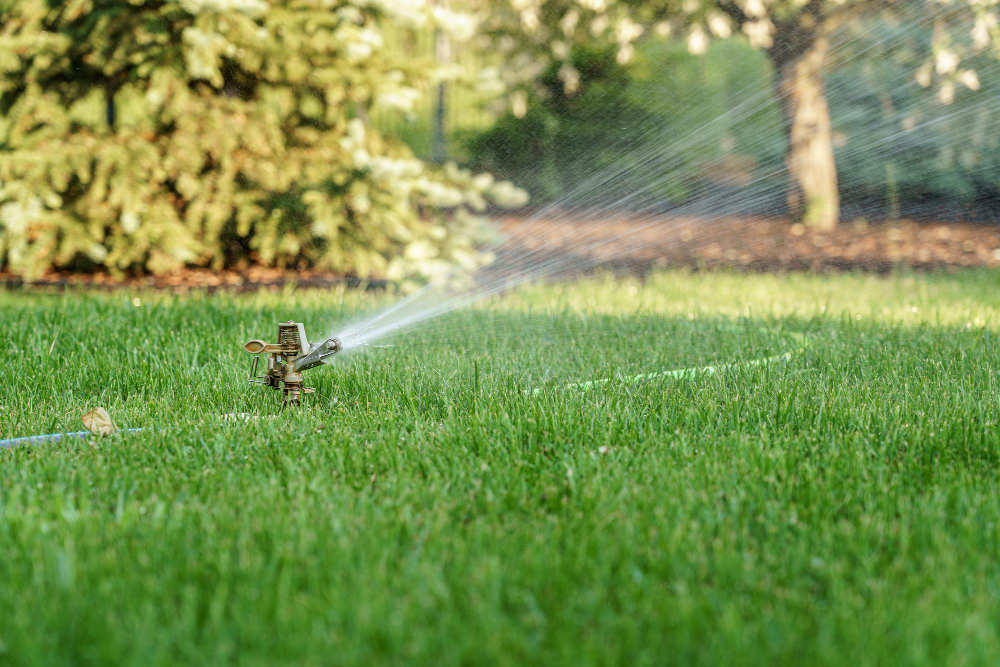Sustainable Irrigation Tips to Save Water in Your Lawn

Water is one of the most precious resources in the world, and even small actions can make a significant difference. If you have a lawn, you probably know that it needs regular watering to stay green and healthy. However, excessive irrigation can waste water and harm the environment. In this blog post, we'll offer some sustainable irrigation tips to save water in your lawn. By adopting these practices, you can save money on your water bill, lower your environmental impact, and keep your yard looking beautiful.
1. Use Smart Watering Technology
One of the most innovative and efficient ways to irrigate your lawn is to use smart watering technology. This technology uses advanced sensors, weather data, and user inputs to optimize watering schedules and reduce water waste. Smart controllers analyze local weather patterns, soil moisture levels, and other factors to determine when to turn on and off the sprinkler system. Some controllers can even adjust the watering amount and duration based on real-time data. With smart watering technology, you can reduce your water consumption by up to 40 percent.
2. Group Plants by Water Needs
Another sustainable irrigation tip is to divide your plants into groups based on their water needs. Different plants have different watering requirements, and grouping them together can help you avoid overwatering or underwatering them. For example, you can group plants that need frequent watering, such as vegetables and annuals, near the sprinkler heads and those that need less water, such as shrubs and perennials, away from the sprinkler heads. By doing so, you can adjust your watering schedule for each group and save water in the long run.
3. Choose Drought-Tolerant Plants
If you're looking for water-saving solutions, consider planting drought-tolerant plants in your yard. Drought-tolerant plants can survive with less water than other plants. They often have thick, waxy leaves or deep roots that retain moisture. Some popular drought-tolerant plants include succulents, cacti, lavender, and rosemary. By planting a mix of drought-tolerant and traditional plants, you can reduce your water usage and create a diverse and eco-friendly landscape.
4. Use Mulch to Retain Moisture
Mulching is another effective way to save water and improve soil health. A layer of organic mulch, such as wood chips, leaves, or straw, can help retain moisture in the soil by reducing evaporation and suppressing weed growth. Mulch also provides insulation for roots, prevents erosion, and adds organic matter to the soil when it decomposes. By applying a thick layer of mulch to your flower beds, you can reduce your watering frequency by up to 50 percent.
5. Check for Leaks and Maintenance
Finally, one of the most basic yet crucial sustainable irrigation tips is to check for leaks and perform regular maintenance on your irrigation system. Leaks can waste a significant amount of water and lead to higher bills. To check for leaks, turn off the water supply to your irrigation system and inspect the pipes, valves, and sprinkler heads for signs of leakage or damage. Also, check your sprinkler heads for clogs, alignment, and coverage. Regular maintenance of your system, including cleaning, adjusting, and upgrading, can help improve its efficiency and ensure it delivers the right amount of water to your lawn.
Conclusion
Sustainable irrigation techniques can provide numerous benefits, from reducing water waste to saving money on your bills. By using smart watering technology, grouping plants by water needs, choosing drought-tolerant plants, using mulch to retain moisture, and checking for leaks and maintenance, you can create a beautiful, healthy, and eco-friendly lawn. By applying these tips, you’ll take a step towards preserving our planet’s precious resources. If you’re looking for sod contractors in Orlando, FL to help you create a sustainable landscape, contact From The Ground Up Landscaping today for a free estimate. Together, we can create a greener and more resilient future!